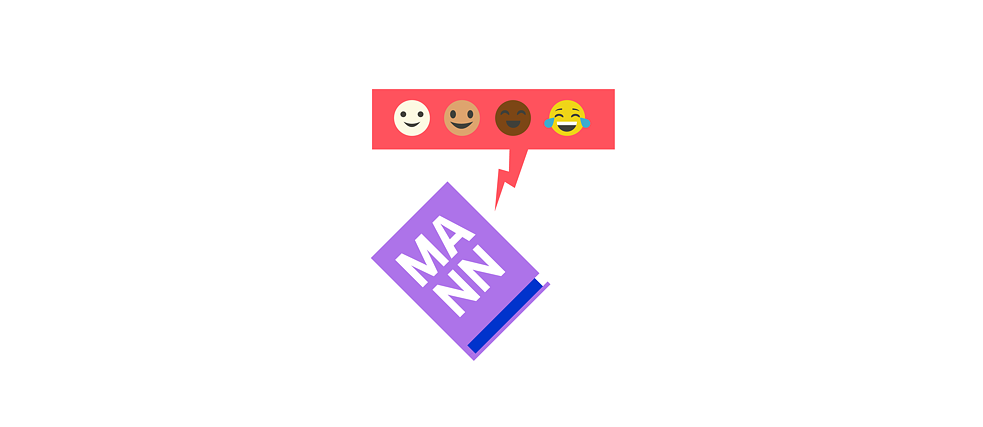Sprechstunde – Die Sprachkolumne
The Oversharing Nobel Laureate

“Grosse Abneigung, nachmittags noch irgend etwas zu tun” – “Loath to undertake anything else this afternoon.” 4,400 people like what Thomas Mann wrote in his diary on 10 August – at least that’s how many likes this tweet got. Dirk von Gehlen on valuations and value not only in the sphere of the digital.
By Dirk von Gehlen
In 1929, Thomas Mann was awarded the Nobel Prize in Literature for his novel Buddenbrooks, his family saga of the 19th century Lübeck bourgeoisie. Amazon currently has 205 reviews of the book from all over the world. Two per cent give it only one star out of five. Since April 2022, however, the author’s reputation has taken on a new dimension, at least in the German-language cybersphere. 67 years after his death, the great novelist now appears to a great many readers in a new and yet oddly familiar light.
World-weariness we can relate to
“In a way, we all have the everyday lives of a Nobel Prize winner,” sums up Felix Lindner, a PhD student in a post-graduate programme called “Kleine Formen” (Short Forms) at Humboldt University of Berlin. Lindner is the man behind the new digital Mann-mania. Ever since April 2022, when the literary scholar first began posting precisely dated excerpts from Thomas Mann’s diaries on the web in the form of tweets, nearly 30,000 Twitter users have subscribed to @DailyMann. And most of them seem to get a kick out of the Nobel laureate’s world-weariness: “Not wanting to work, being tired and grumpy, all that world-weariness,” explains tweeter Lindner, who hasn’t made any changes to the diarist’s entries, but merely cast them in a different mould. “People can relate to and readily imagine that, because they take pleasure in seeing the Mann myth of the ever-disciplined workhorse and icon of the educated elite go up in smoke.”Brief, candid tweets that turn the Nobel laureate into an “oversharer”, which is what we nowadays call those who share a little “too much information” about their personal lives a little too readily. Oversharing has been diagnosed in despairing remarks as a symptom of cultural decline in the digital age. Internet selfie culture is all about itself, say the pessimists: digital language is self-referential, and real highbrow culture is no longer possible on the web.
Anyone reading the Nobel laureate’s tweets – pardon me: diary entries – has to come to grips with this diagnosis. Analog highbrow culture’s myth of the hallowed printed page dissolves in the light of entries like these:
“I wasn’t wearing an undervest, so my torso was [...] exposed to the draught, which is a very pleasant sensation.” (21 May)
“A bit of a sore throat from wearing briefs this afternoon.” (18 August)
“Severe irritation of the rectal zone.” (6 October)
“Slept nervously due to erotic fantasies in the evening.” (22 December)
“The sexuality – incredible.” (12 November)
Is digital really inferior?
How would we rate the author of these lines if he’d put them in an Instagram story instead of a diary? Would we strip him of his literary credentials? Would we read any of his works at all? I asked Felix Lindner about this aspect of the diary tweets. The literary scholar points out that the writer would presumably have disapproved of this public exposure: “Thomas Mann would rather have had both hands amputated than to tweet. To him, any kind of sensibility was a private matter.”And yet, his “oversharing” – albeit not intended for prying eyes – brings to light an interesting aspect of how we view digital language, which has to contend with an unrelenting prejudice: digital is deemed inferior to the printed word. What cannot be written on paper – like an emoji or emoticon – is considered silly, unserious and automatically disqualified from becoming part of a cultivated canon. And yet, I’ve been wondering for some time now – and not just since April 2022 when the Mann tweets got started – why not? ¯\_(ツ)_/¯
In addition to a new view of Thomas Mann, we have Felix Lindner’s tweets to thank for another change of perspective that can help us to a better appreciation of digital language. By digitizing the diaries, @DailyMann is pointing up our blind spot when it comes to digital language: Owing to the context of its distribution, if nothing else, it is seldom valorized and appreciated as much as canonical literature.
We can change that by changing how netspeak and digital discourse. What aspects thereof do you notice? Let me know – digitally – at sprachkolumne@goethe.de.
Word! The Language Column
Our column “Word!” appears every two weeks. It is dedicated to language – as a cultural and social phenomenon. How does language develop, what attitude do authors have towards “their” language, how does language shape a society? – Changing columnists – people with a professional or other connection to language – follow their personal topics for six consecutive issues.